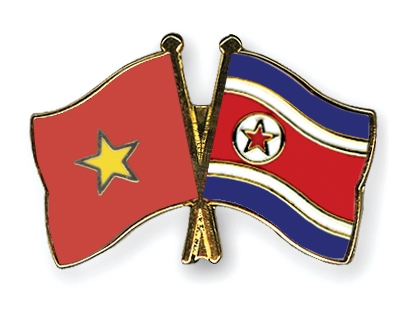Nevertheless North Korea is different from Vietnam in three ways that could hurt.
不過朝鮮和越南存在三方面的不同點,這或許對朝鮮而言是個打擊。
In Vietnam's south, its economic heartland, collectivisation of farms and factories lasted just ten years before private ownership was restored.
越南南部是它的經濟腹地,在恢復私人所有制之前,這里的農業和工業集體化已經持續了十年。
People who had previously run businesses were able to get quickly back in the game.
以前經營商業的人可以迅速在這場游戲中恢復。
After 65 years of juche, the national ideology of self-reliance, North Koreans are starting from scratch.
經過65年的自主(自力更生的國家意識形態)后,朝鮮正在從頭開始。
The growth of informal food and goods markets in recent years shows some entrepreneurship, but the learning curve for big firms will be much steeper.
近些年非正規食品和商品市場的增長展現出了一些企業家精神,但是對大型公司的經驗學習曲線將更加崎嶇。
The structure of North Korea's economy also complicates matters.
朝鮮經濟的結構也使得這些問題復雜化。
More than 70% of the workforce in both Vietnam in the mid-1980s and China in the late 1970s (when its economic reforms started) was in agriculture.
20世紀80年代中期的越南以及20世紀70年代后期的中國(當時剛開始經濟改革),兩國超過70%的勞動力都在農業領域。
Simple changes to incentivesletting farmers profit from the sale of their own crops, for example-led to a surge of agricultural productivity.
對激勵因素做出簡單的變化—例如,讓農民從自產的農作物中獲利—就能引起農業生產力的劇增。
And the exodus of workers from farms generated a pool of cheap labour for factories, fuelling the rise of export industries.
并且農業工人的大批離去為工業提供了大批廉價勞動力,刺激了出口產業的增長。
By contrast, more than 60% of North Korea's population already lives in cities.
相比之下,朝鮮超過60%的人口已經生活在了城市。
For big productivity gains, the government will need to overhaul moribund industries.
對于生產率的大幅提高而言,政府將需要對其停滯不前的工業進行改革。
In that respect North Korea resembles eastern Europe after the Soviet Union's demise,
在這一方面,朝鮮就像是蘇聯瓦解后的東歐一樣,
says Marcus Noland of the Peterson Institute for International Economics, a think-tank in Washington.
白宮智囊團成員、彼得森國際經濟研究所的馬庫斯·諾蘭說道。

"There will be losers," he says. Unemployment might soar. Privatisation could increase already rampant corruption even further.
“將會出現輸家,”他說。失業率或許會激增。私有化可能會進一步刺激已存在的猖獗的腐敗。
Sitting between China, South Korea and Japan, North Korea should find it easy to attract capital to create jobs.
坐落于中國、韓國與日本之間,朝鮮應該能夠輕易吸引資本創造就業。
But its record for foreign investors is poor: it seized South Korean assets at their showpiece joint industrial park in 2016 when relations deteriorated.
但是朝鮮的外資記錄很糟糕:2016年,朝韓兩國關系惡化時,朝鮮在聯合工業園區內查封了韓國的展柜。
Another weakness for North Korea is demography.
朝鮮的另一個弱勢是其人口。
When Vietnam and China embarked on reforms they were both young countries, with median ages of about 20.
越南和中國開始改革時,兩國均為年輕的國家,人口平均年齡約為20歲。
They had many workers and few elderly dependent on them. In North Korea, the median age is already 34, making it even older than Vietnam today.
兩國內有很多勞動力,需要贍養的老年人很少。在朝鮮,他們的平均年齡已是34歲了,比如今的越南平均年齡還大。
As China ages, officials worry that it will get old before it gets rich. In North Korea the risk is that it will get old while it is still impoverished.
隨著中國人口年紀的增長,官方擔心國家在富裕前,人口就已經衰老。在朝鮮,其風險在于,人口衰老時,國家仍未脫貧。
All the more reason for Mr. Kim to get cracking on economic reform. He may have little hope of building the next Vietnam.
金正恩更有理由開始經濟改革。或許他建立下一個越南的希望渺茫。
But better that he look to the outside world than keep North Korea entombed.
但是好在他將目光投向了外邊的世界而不是讓朝鮮與世隔絕。
譯文由可可原創,僅供學習交流使用,未經許可請勿轉載。



